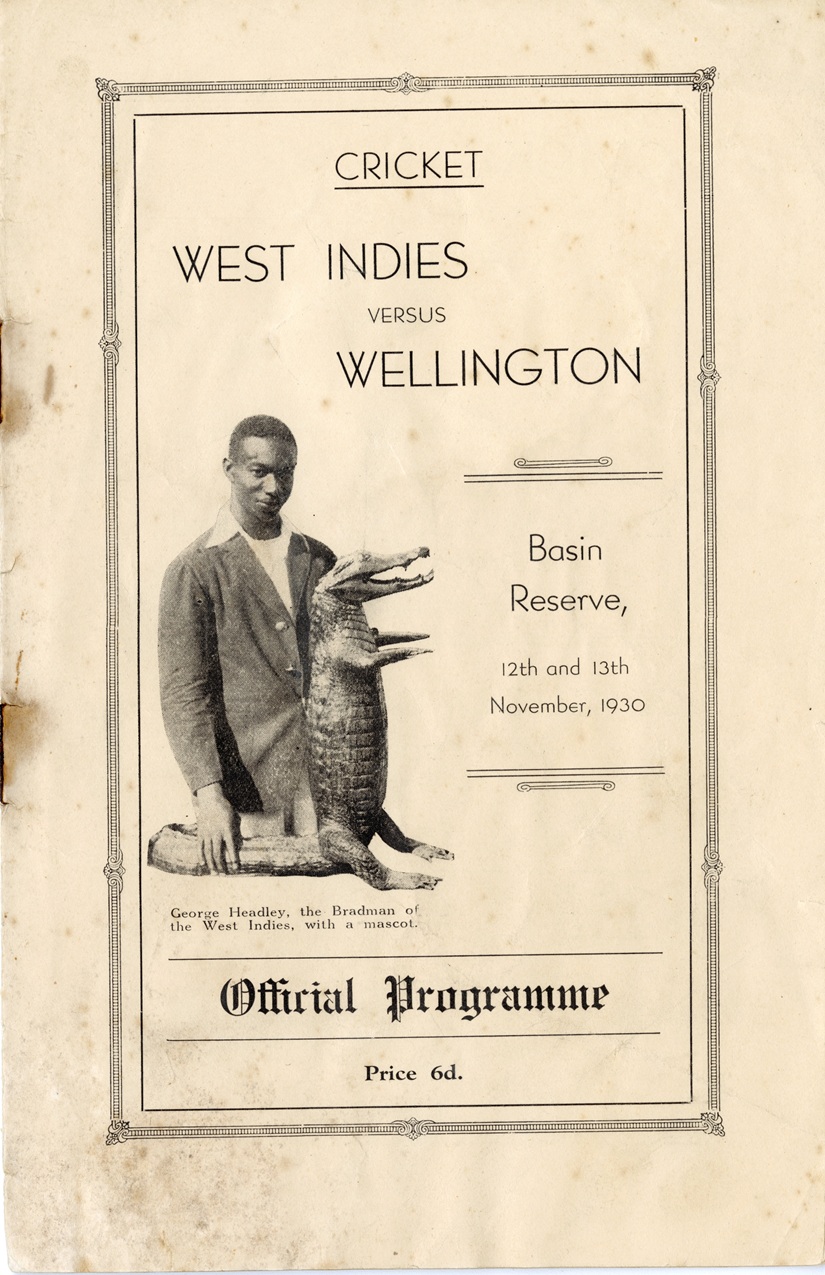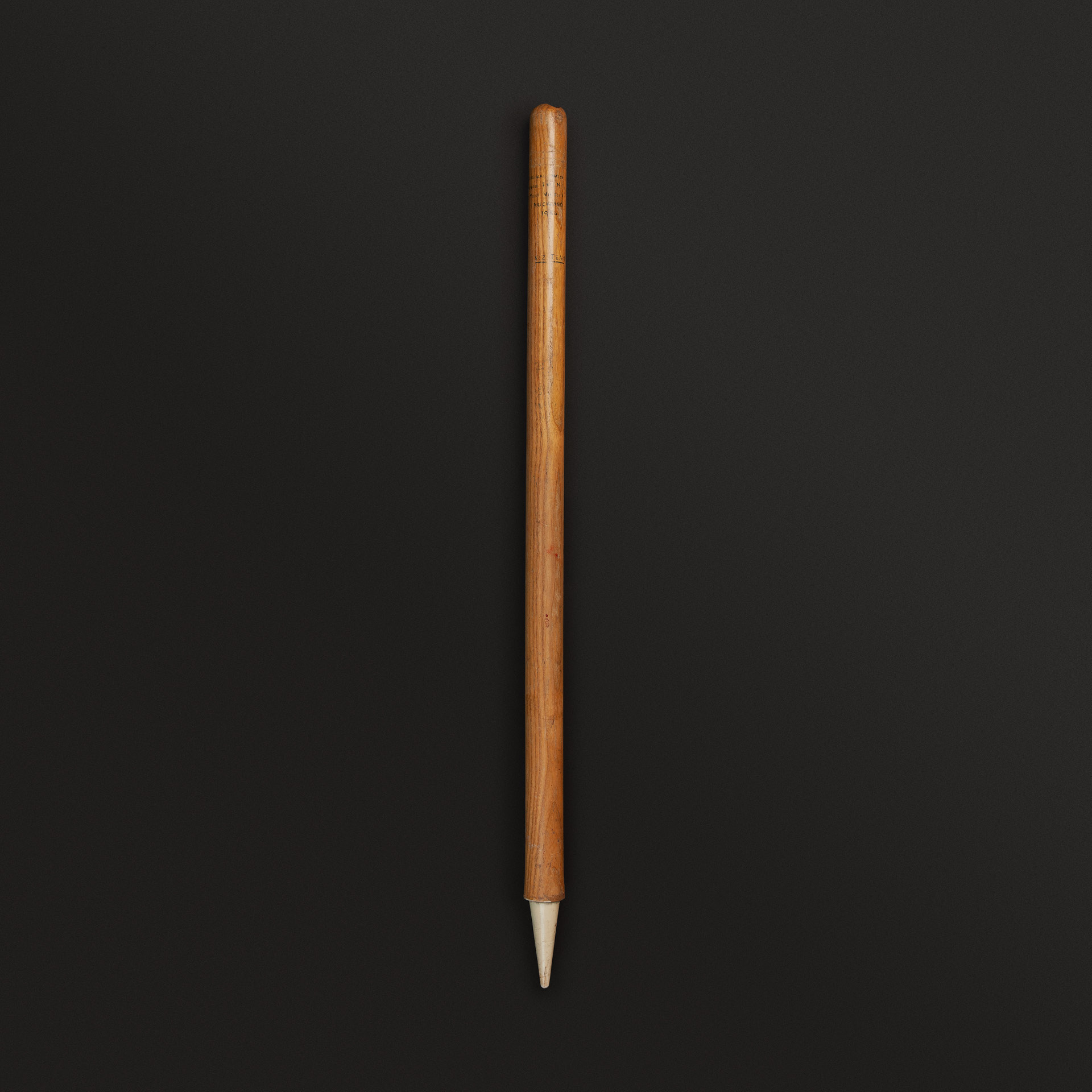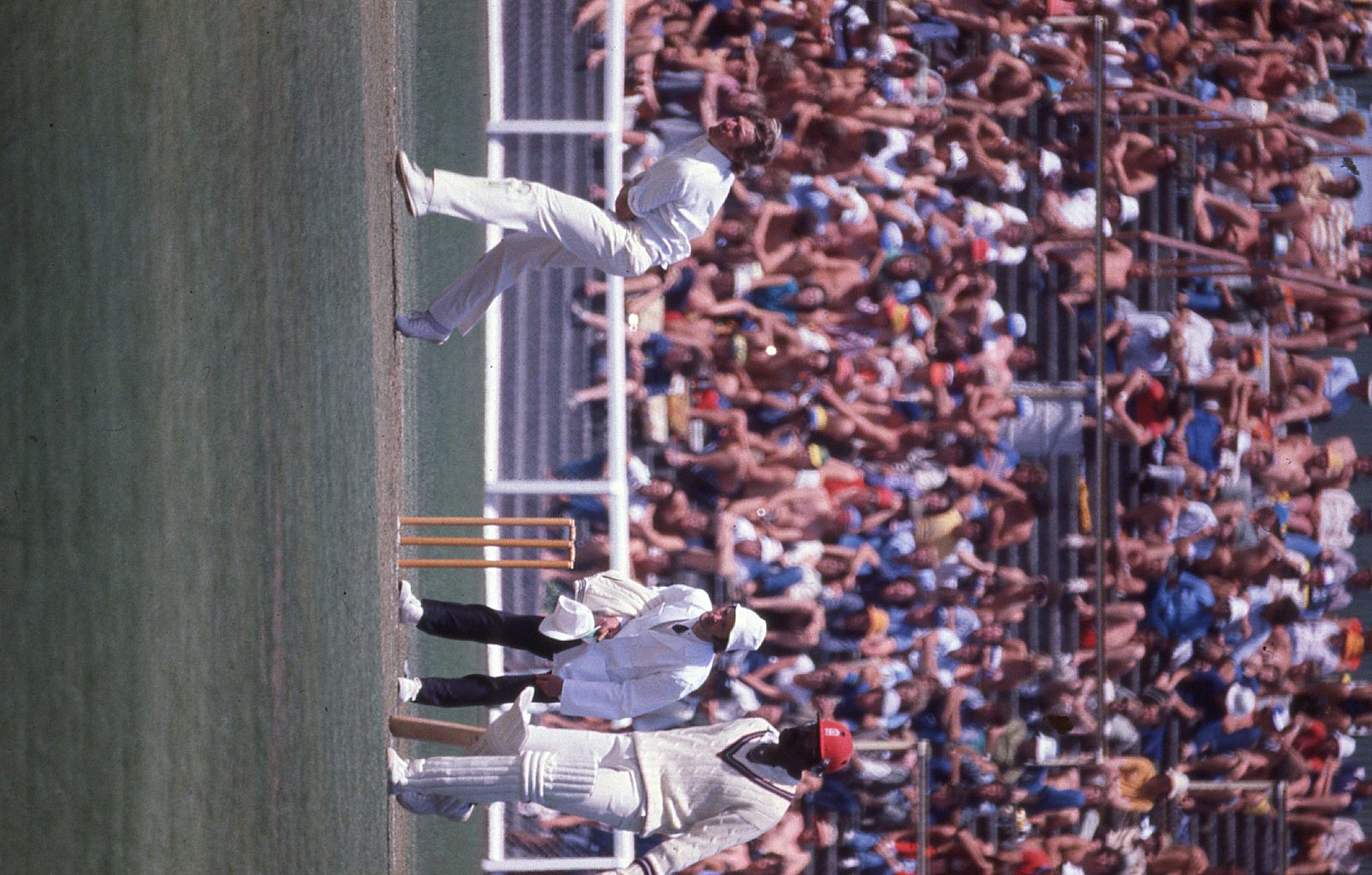
The first West Indies team to visit our shores arrived in November 1930 on its way to Australia to play a five Test series against Bill Woodfull’s men. The side was captained by Jackie Grant from Guyana and contained two of the great early West Indies players in Trinidadian Learie Constantine and George Headley from Jamaica. They played a two-day game against Wellington at the Basin Reserve, Constantine taking 6-24 in Wellington’s innings of 195. They had reached 128-4 in reply before rain halted play early on the second day. Wellington held the Plunket Shield at that time and notable members were captain Tom Lowry, Stewie Dempster, Herb McGirr, and future Governor-General Denis Blundell.
They returned in February 1952, after a five Test tour of Australia. The Barbadian trio of Everton Weekes, Clyde Walcott and Frank Worrell were in this side, which was captained by John Goddard. They won the first Test in Christchurch by five wickets with off-spinner Sonny Ramadhan from Trinidad taking nine wickets in the match and Jamaican left-arm spinner Alf Valentine taking five. The second Test in Auckland was drawn after New Zealand were asked to follow on 286 runs behind on the first innings, then rain washed out play on the fourth and final day. Valentine and Ramadhan each took three wickets.

Denis Atkinson’s team which toured in February and March 1956, was a strong one with Valentine, Ramadhan, Worrell, Weekes and Garfield Sobers. Two members of that team; opener Bruce Pairaudeau and wicket-keeper Sammy Guillen later settled in New Zealand.
After losing the first three Tests, New Zealand, captained by John R Reid, won the fourth at Eden Park by 190 runs after skittling the visitors for 77 in their second innings. Opening bowler Harry Cave took 4-22 in the first innings and 4-21 in the second. It was New Zealand’s first ever Test victory.
The side that arrived in February 1968 had been in Australia since October where they lost the Test series 3-1. Led by the great Garfield Sobers, other notable players were Roy Fredericks, Rohan Kanhai, Clive Lloyd, Seymour Nurse, Lance Gibbs, Charlie Griffith and Wes Hall. They won the first Test in Auckland by five wickets despite Bruce Taylor making 124 in his first Test innings. It was the fifth fastest Test century at that time. Nurse made 95 runs in the first innings and 168 in the second.
New Zealand bounced back to win the second Test at the Basin Reserve by six wickets after Dick Motz took 6-69 in the first innings, and Bob Cunis and Bryan Yuile three wickets each in the second. Glenn Turner, Bevan Congdon and Brain Hasting made half-centuries to play their part in what was New Zealand’s fifth Test victory.
The third Test in Christchurch finished in a draw following an innings of 258 by Seymour Nurse who had announced this would be his final Test. New Zealand were dismissed exactly 200 runs behind the West Indies’ total of 417 and were asked to follow-on. A century to Brian Hasting and solid knocks by captain Graham Dowling, Vic Pollard, Turner and Yuile ensured the Test and the series were drawn.
Signed stump from New Zealand's Test victory against the West Indies, March 1956

The West Indies side to New Zealand in 1979/80 under Clive Lloyd was another strong one and had just beaten Australia 2-0 in a three-match series. Apart from Lloyd, the leading batters were Gordon Greenidge, Desmond Haynes, Lawrence Rowe and Alvin Kallicharan. The pace attack comprised Andy Roberts, Colin Croft, Michael Holding and Joel Garner, while the promising 21-year-old Malcolm Marshall was in the squad but did not play a Test.
New Zealand won the first Test in Dunedin by one wicket, chasing 104, for their 11th Test victory. They then drew the next two in Christchurch and Auckland to win a memorable series. Captain Geoff Howarth, Richard Hadlee and Bruce Edgar scored centuries, with Edgar’s 214 runs the most for New Zealand. Richard Hadlee took 19 wickets, becoming New Zealand’s highest Test wicket-taker. Left-armer Gary Troup took 18 wickets, while Lance Cairns had figures of 6-85 in the first innings at Christchurch.
The series was not free of controversy. On day three of the second Test the West Indies’ players were so incensed by umpire Fred Goodall that they refused to come out after tea until he was replaced. They did appear after a delay of 11 minutes but removed all gear from the dressing room at the end of play. The following day was a rest day but the game only resumed after frantic efforts by officials from both teams.